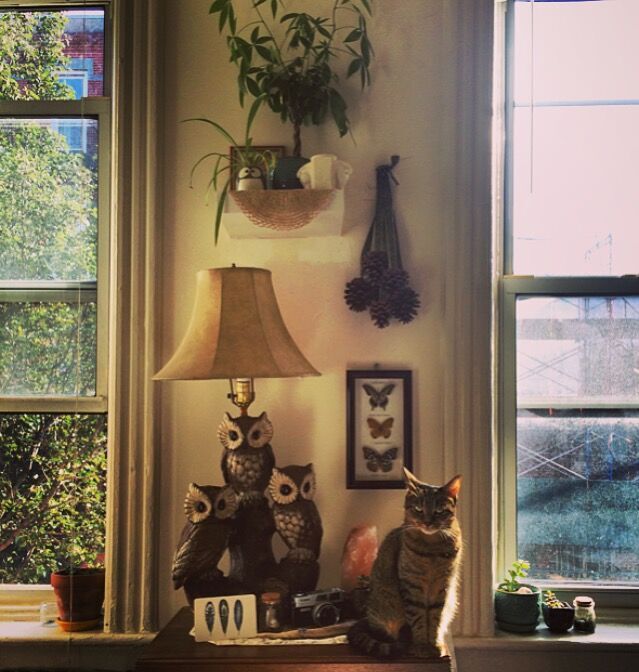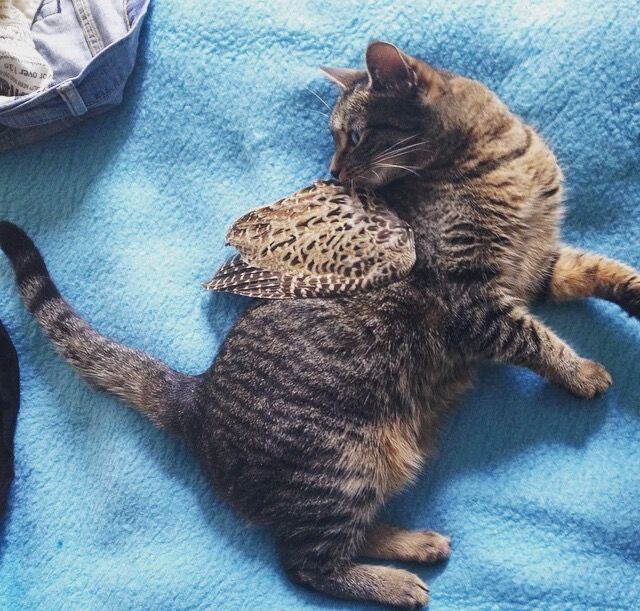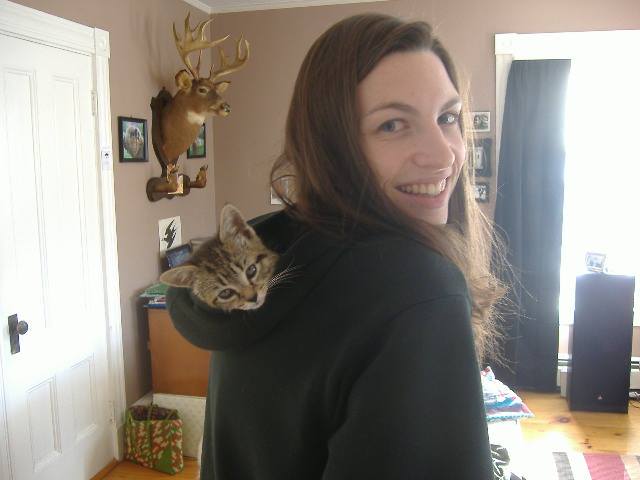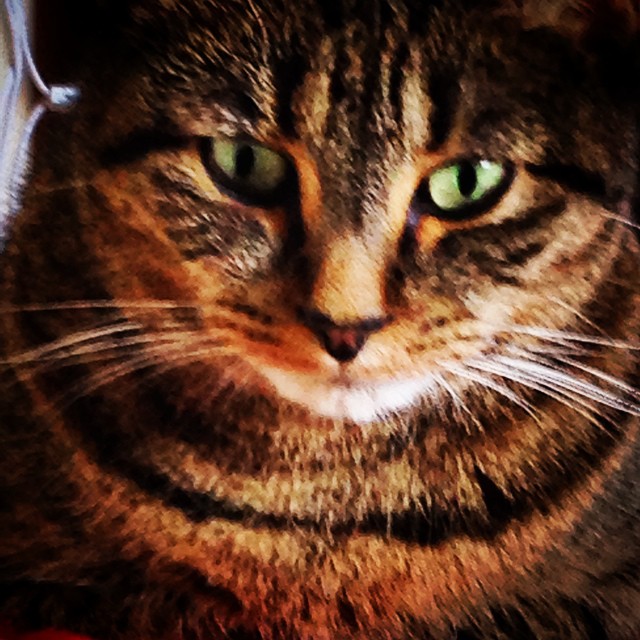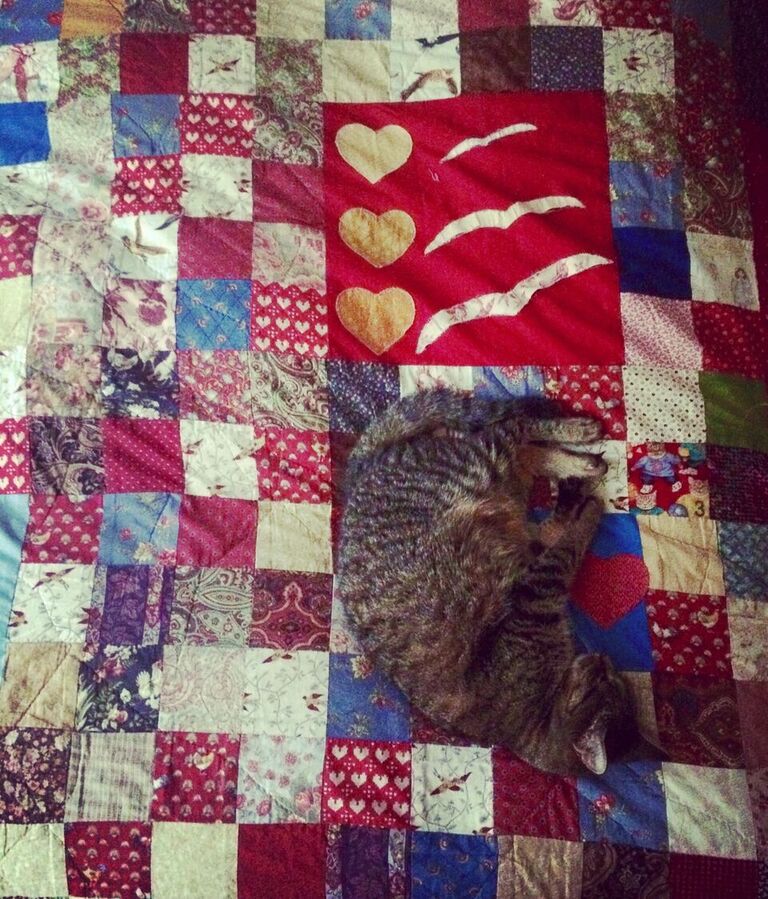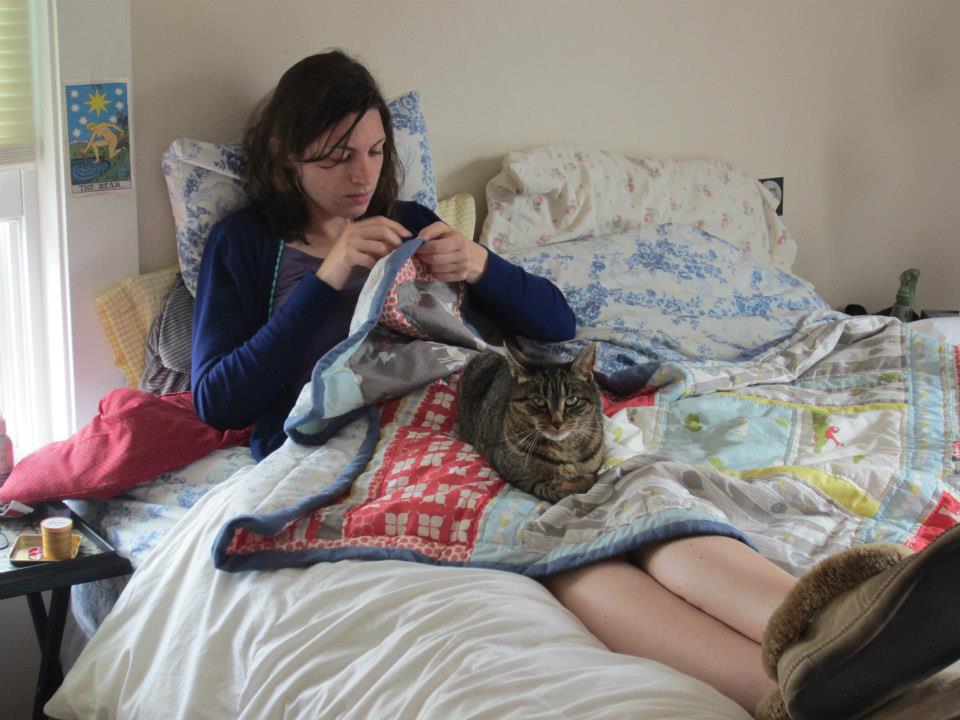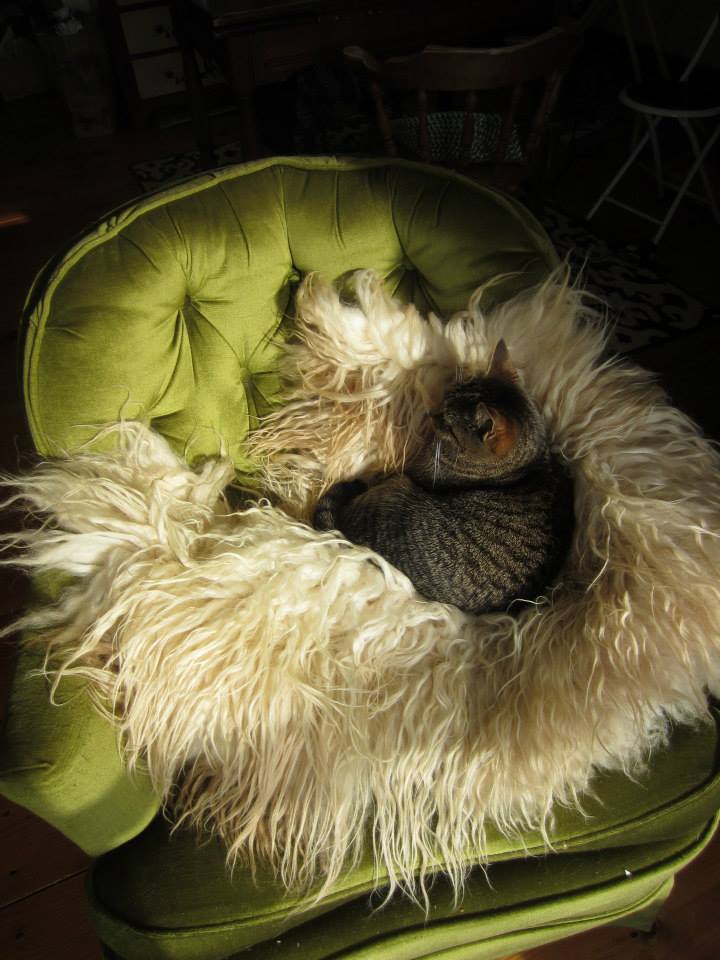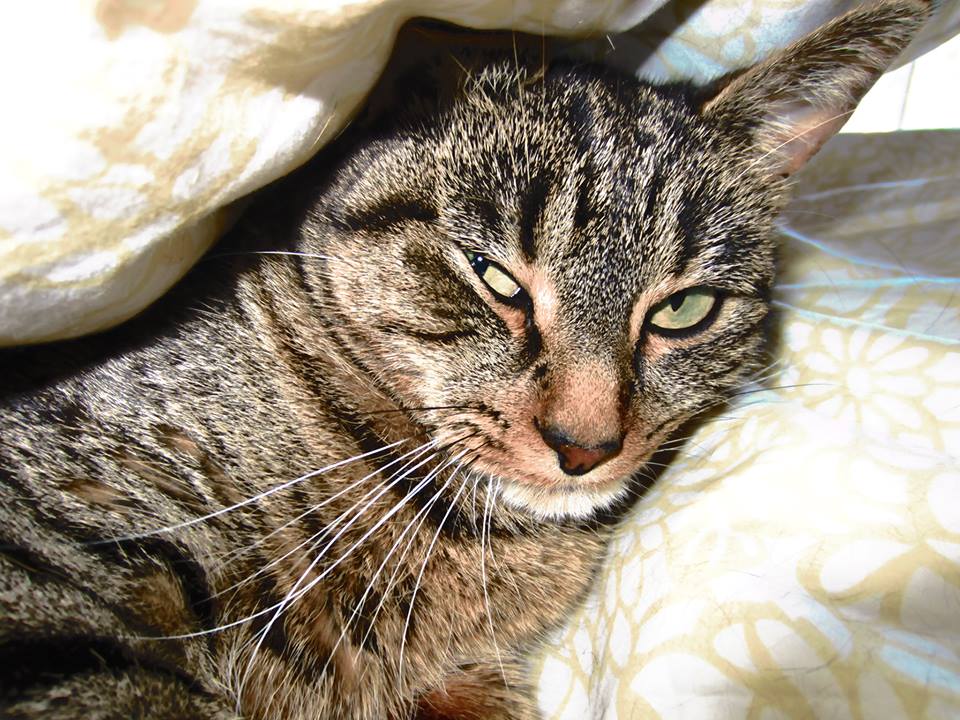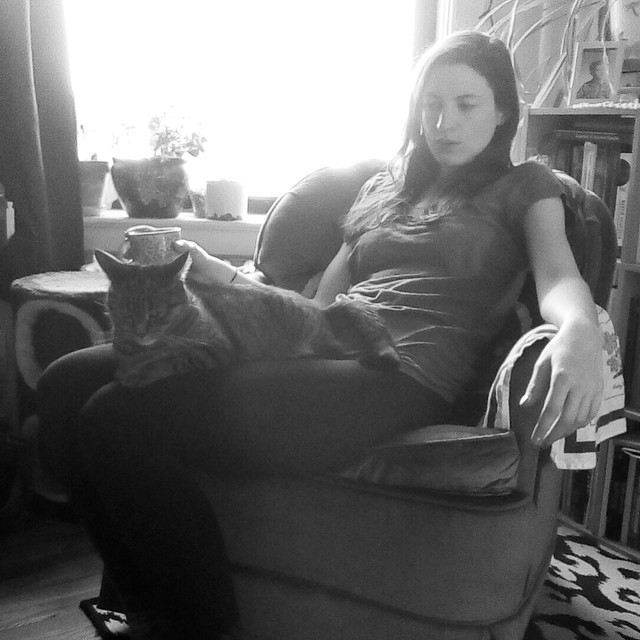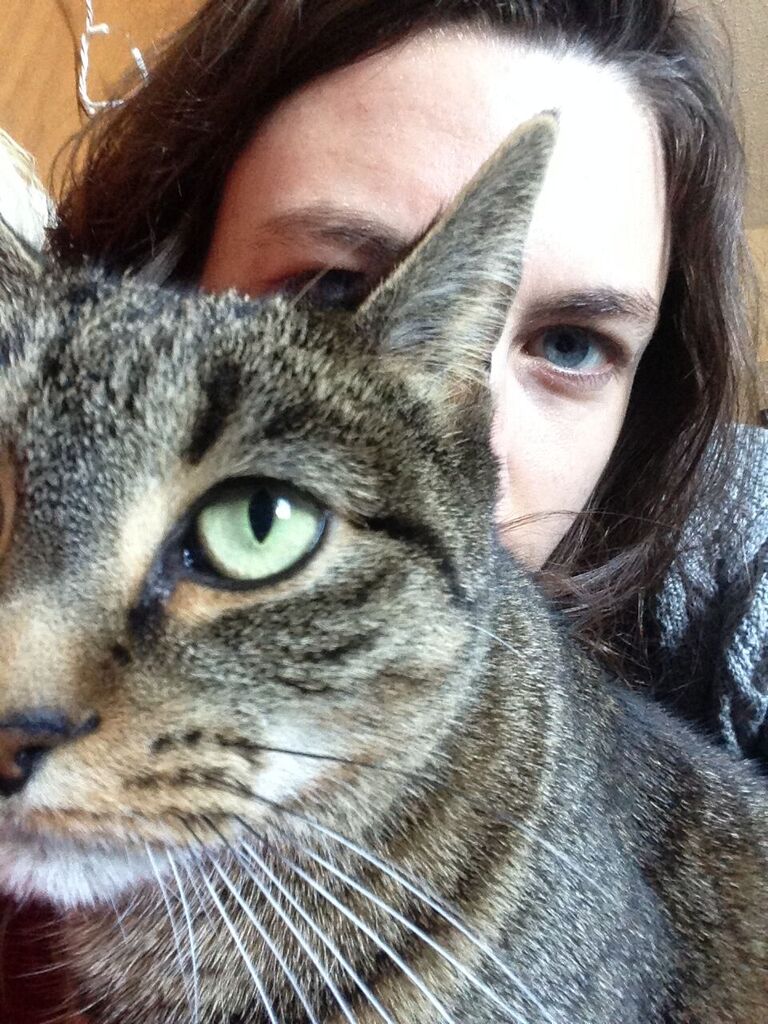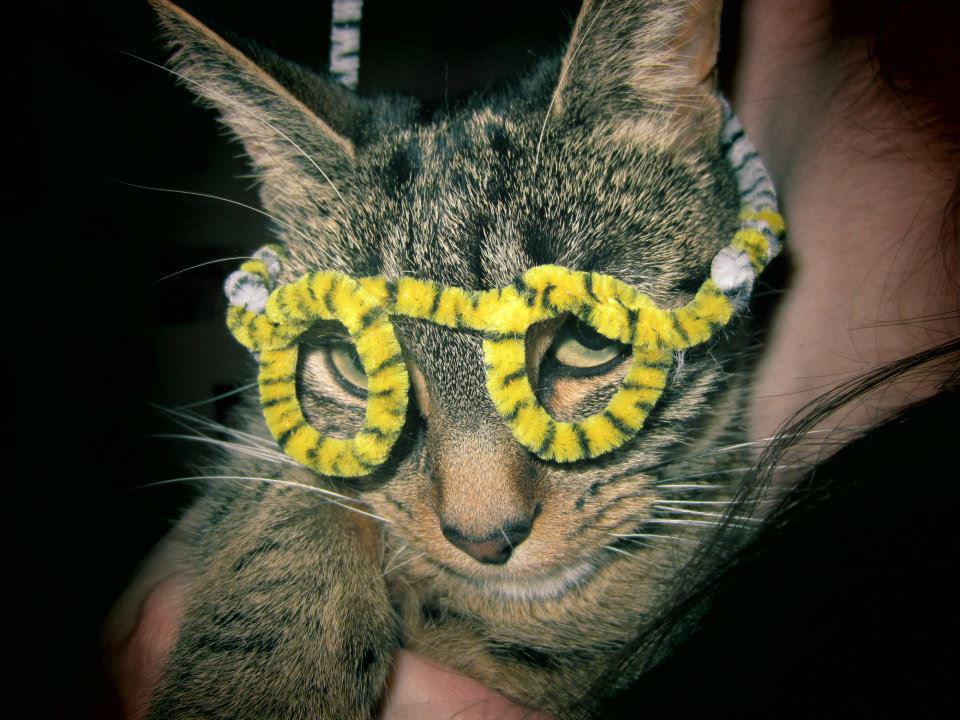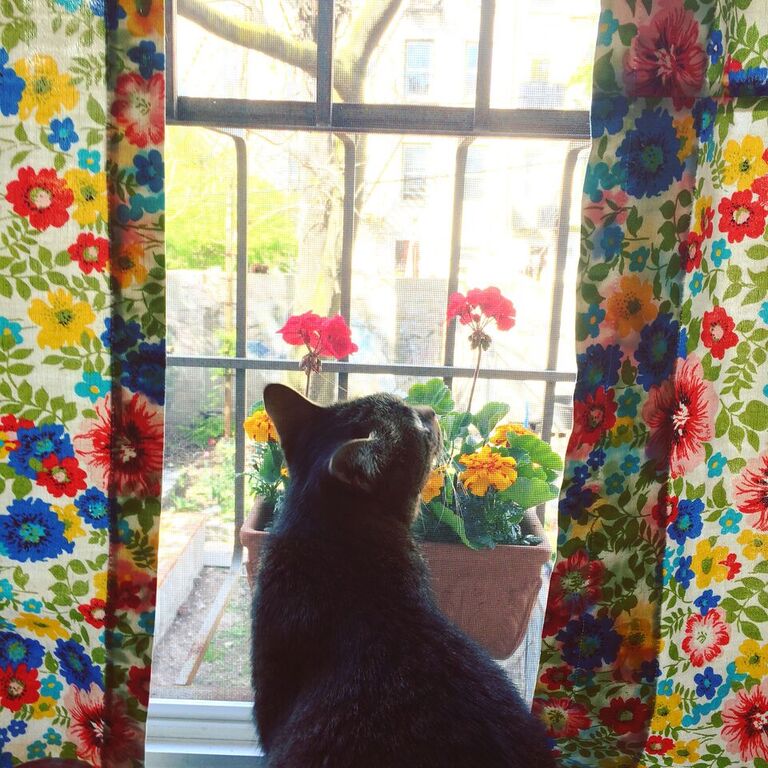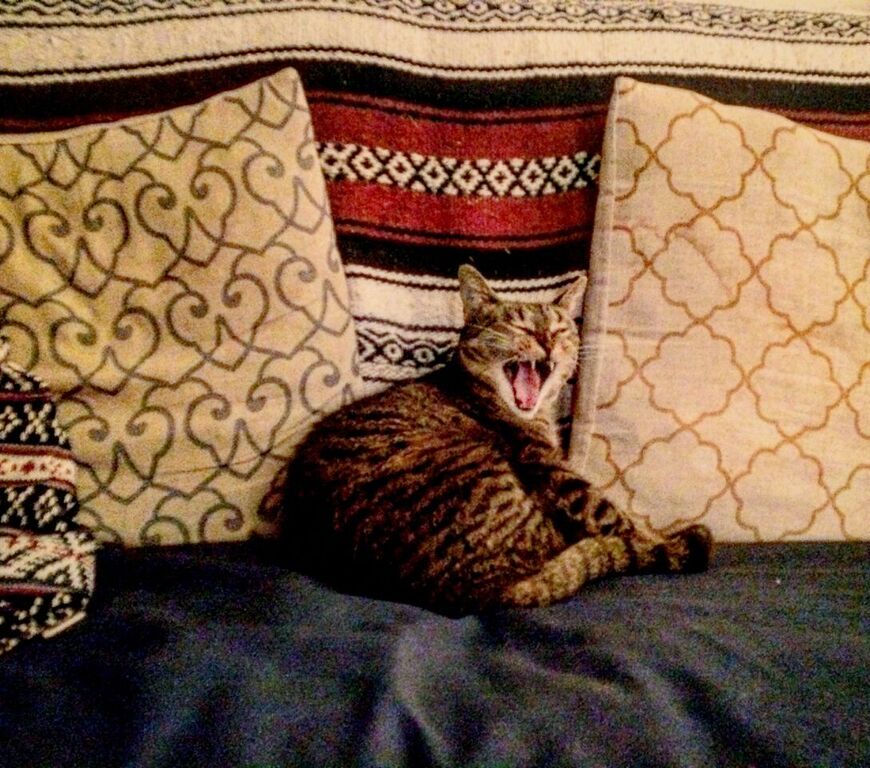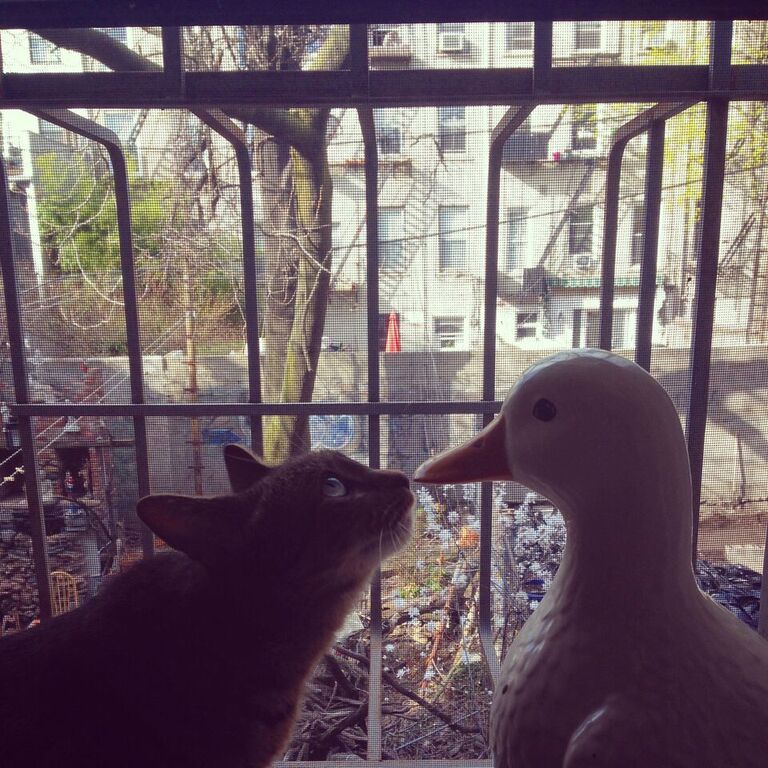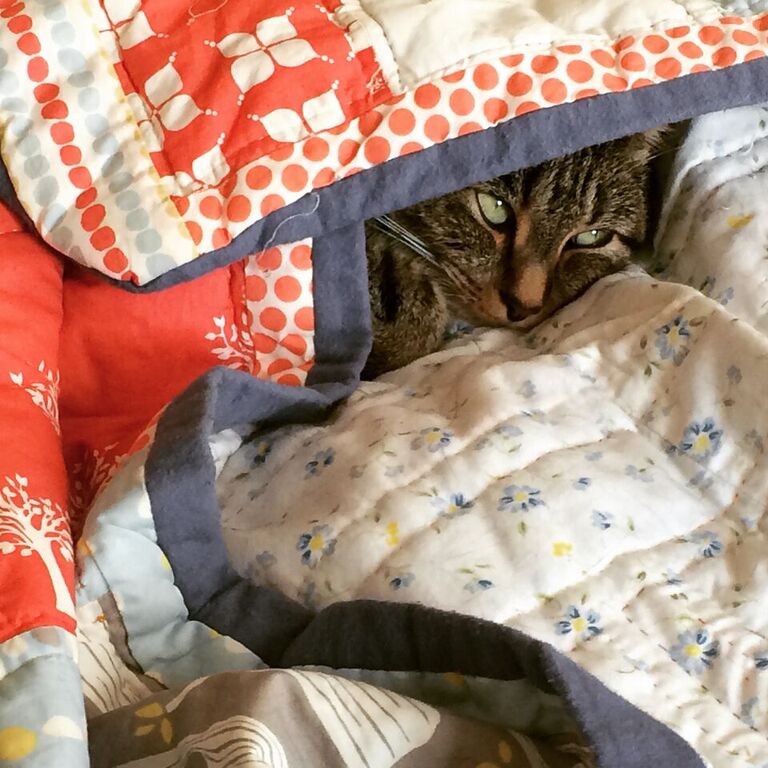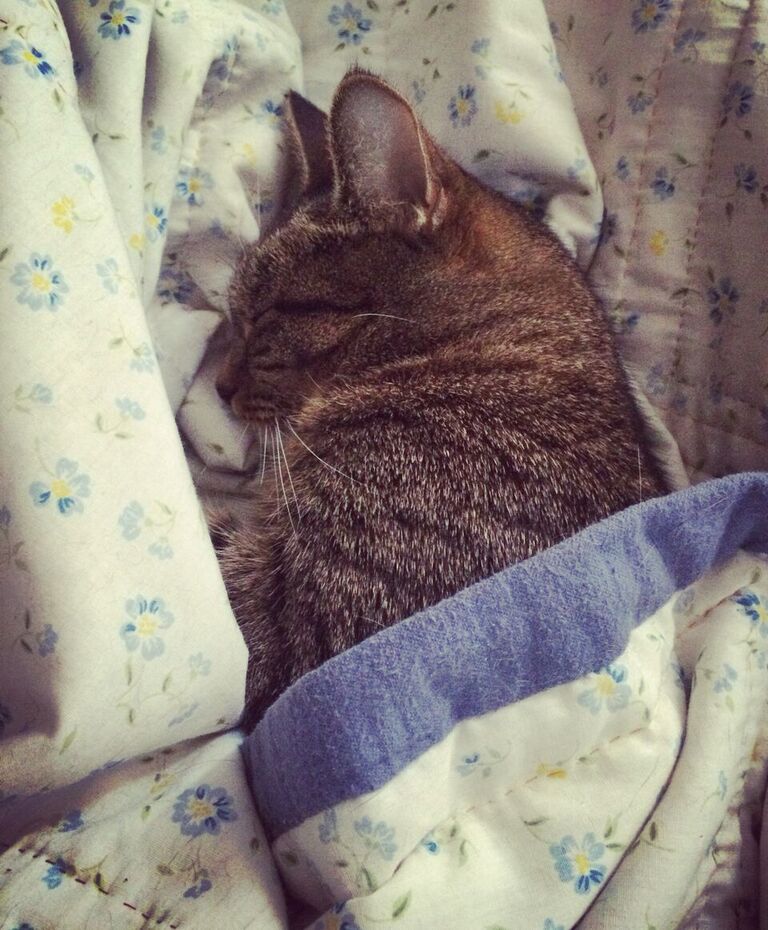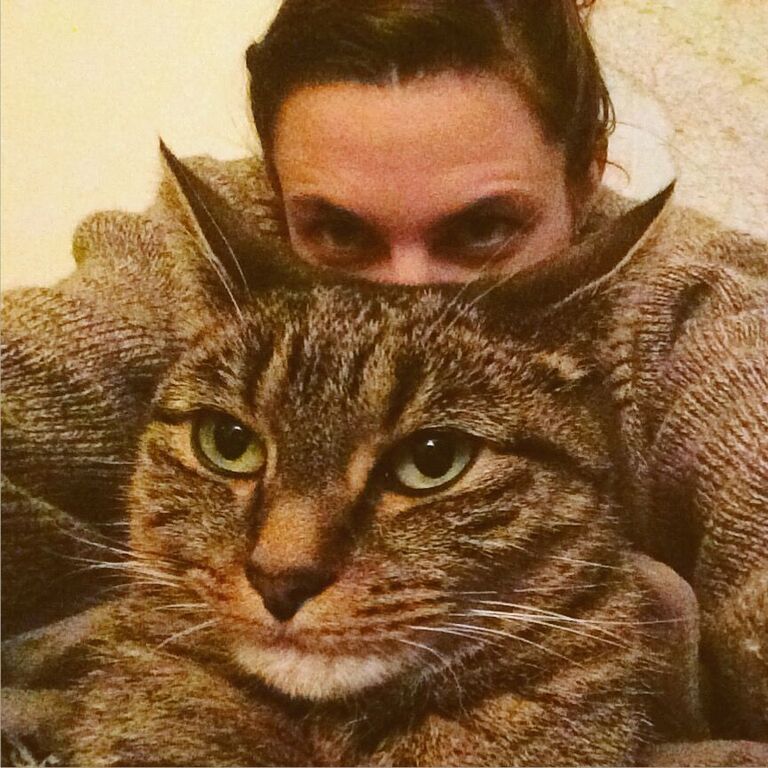Jess Feldman: Carry the Wild
Fact: today you'll learn why Jess Feldman doesn't care much for llamas (spoiler alert: they have a v. annoying superpower), the connective thread between Frank O'Hara and her cat Willicus, and her sage advice for melding the 9-to-5 world with the creative life.
Teasers aside, what a joy it is to talk to a poet who is so mindful in the way she moves through her environment. Perhaps that's why she is both a poet and a quilter – both arts require the endurance to advance stitch by stitch.
Before we get to it, a little background: Jess Feldman is a writer, editor, and third-generation quilter originally from New England and now based in New York City. Her manuscript Call It a Premonition was chosen by poet Zachary Schomburg as winner of BOAAT’s 2015 Winter Chapbook Prize, and her poetry has appeared in numerous publications, such as Sixth Finch, Transom, The Portland Review, Vinyl and Tuesday; An Art Project. She holds an MFA in writing and a BA in English from the University of New Hampshire, and currently works as the office manager at a boutique entertainment law firm in Brooklyn.
Let’s hear a little background on your cat Willicus. What a name!
First off, the name breakdown: Matilda > Tilly > Tilly-Will > the Willicus. Purrfect sense, right?
I've had my cat for nearly seven years now (she'll be seven in September – a Virgo / Libra cusp). My partner Mike Luz & I have been together for nearly nine years, and I can't believe that for those first years we didn't have our cat Tilly "the Willicus." How did we survive?!
Willicus is a mere eight pounds, loves salmon & destroying things slightly, and despises cylinders (specifically my round hair-dryer brush). I always saw myself as a dog- & horse-person, but isn't it wonderful to continue to live & find out how truly big and ever-expanding the heart can be? There are so many cool, amazing creatures out there to inspire love & compassion in humankind.
But to be honest, there is one furry creature I don't particularly like and that's llamas. The llamas I've met don't really acknowledge your presence. Instead they emit a high-pitched noise while slowly backing away – I believe that if you were to sustain that llama noise in a direct hit, your entire being would be eliminated off the face of the planet. However, I did see something about a therapy llama named Rojo who may be able to change my mind. Like I said, my heart could hold love for a llama someday.
Back to my cat…
I picked up the Willicus on a chilly, dark night in November 2009. She was one of two kittens left and was raised by a woman who lived in the New Hampshire woods. Willicus's dad was a feral cat of the woods, which is why she's still kind of half-feral (or as Mike & I say: half-domesticated). I told myself the first kitten to walk over to me would be my cat, and that's the Willicus for you – she's bold even when she's scared or uncertain. When I was driving her back to my apartment, she somehow wriggled her way free of the soft cat-carrier I had in my car and made her way onto the seat next to me. #copilot4life
2009 was a difficult year for me. This scrap of a tabby cat sauntering into my life with her sassy strength & take-no-holds approach to enjoying life buoyed me. She continues to be a source of inspiration to me when I feel besieged by the world and its demands. Her talents for napping and playing with junk (elastic bands, tissue paper, plastic bags) help me find balance in the here & now when so often I get tied up in my mental & emotional maelstrom. Willicus is the antidote to world-weariness.
"Willicus is the antidote to world-weariness."
That’s been true for me, too – animals seem to sustain my emotional endurance. Sometimes I’ll look up from my work in full existential-crisis mode and think, I can’t do this for another minute, and then Pete or Bear will look at me with their funny little faces and their sweet eyes, and I’m like, okay, do it so you can buy dog food. That pragmatic motivation that comes with caretaking can be so essential for the minute-to-minute existence, right?
Definitely. It’s a relief to get out of my head in those moments, and it’s a gift to be beholden to something that’s perpetually adorable.
You write for a living now, correct? My experience says that word work (at times) can be mentally exhausting in uncharted ways! What’s your experience been like? And how do you compartmentalize / reserve creative energy for your poetry work?
I do more editing and curating of material now, but no matter what, I use my work experiences as opportunities to gain new language (structure, concepts, diction) that I can fold into my own work. In essence, poet-brain is on all the time for me. Poet David Rivard got me into the habit of tagging good words, ideas, etc. into a small Moleskine. It helps me keep the chaos anchored somewhere and feel productive even if I haven’t had a moment to pull together a complete poem.
Living the 9 - 5 office life at times can feel like I’ll never get any good writing done. Instead of seated somewhere picturesque and quiet with pen & paper, I’m answering phones and emails. In those moments, I remind myself that poems don’t just live in vacationland. Poems live in that mundane free-for-all of our inner & outer lives. They may not look like much at first, but brush them off and they shine.
"I remind myself that poems don’t just live in vacationland. Poems live in that mundane free-for-all of our inner & outer lives."
On to poems! My nerd heart is so happy that you write a lot about animals. Let’s talk about one poem in particular – “Hinterland” – a poem you described as your “calling-all-animals / New-Hampshire-girl manifesto.” For our readers, a few lines:
Crowded with light, am I so grave that what were once maned wolves are now purple
asters?
Are ladles as stiff, as accurate as a flock of hooded merganser?
I have never been a person in the world with hands held out, anticipating Communion.
I have not been that honest.
You, bright helix: Touch; tell this touch I am far from things I knew.
How important are animals in telling the story of a place? In telling the story of what matters to you?
Growing up, the woods were my haven. It was a place I could go to and feel wild & lonely in the most productive way. I’d follow tracks, catch tadpoles, collect empty buckshot canisters, climb trees, sing songs mournfully, set snares that never worked – the whole kid-in-the-woods gamut. Animals both seen & unseen were points of inspiration, things to dream upon, and sometimes, beings to become.
As Sarah Orne Jewett so rightly states in her novella The Country of the Pointed Firs, “In the life of each of us… there is a place remote and islanded; we are each the unaccompanied hermit and recluse of an hour or a day; we understand our fellows of the cell to whatever age of history they may belong.” I carry that wild space inside me still. It feels especially important now since I’m surrounded by more buildings than trees these days.
However, a few words about the city wilderness I’m experiencing now: I never thought I’d like living in New York City, but after three years, it’s become it’s own wild place I inhabit with love. There’s a different sort of wildlife here (rats, cockroaches, pigeons & feisty sparrows, tiny dogs, alley cats) that I’m interacting with and integrating into my new work.
"Animals both seen & unseen were points of inspiration, things to dream upon, and sometimes, beings to become."
Your chapbook Call It a Premonition is based on the Voynich Manuscript, a Renaissance-era text that to this day hasn’t been deciphered, much to the chagrin of linguists, cryptographers, and codebreakers. How did you settle on the interpretation of the manuscript as a collection of mini, experimental dispatches?
I had this teenage girl voice entering my poems for a while. Stumbling upon the Voynich Manuscript (which you can page through via Yale) seemed like a great opportunity to explore that teenage girl voice, reimagining the Voynich Manuscript as her diary. I had just gotten my first smartphone and was managing social media for a hunting & fishing app at the time, so my new awareness of digital presence enters the chapbook alongside this beloved yet nameless girl’s coming-of-age.
In your poem “The Way Back,” a horse “steady in the depths of his soft manured stall” finds a place in a poem steeped in loss. Why did you choose the horse to mirror the speaker’s pain?
I love horses. They are my favorite animal and have been my favorite animal since I can remember. As a kid, I wanted to grow up to be a horse instead of an adult. Instead I grew up to be an adult that stables a horse in any poem she can. I have immense respect for a horse’s perceptive powers. I’ve always seen them as healers; in poems and in real life, their beings are strong enough to act as a conduit for a person’s true feelings.
"I carry that wild space inside me still."
Back to dear Willicus. I know you said you are too close to her to write about her yet, but has she helped you write about the animals that do appear in your poems?
I so want to write a poem about Willicus, but it’s tricky for me to focus a poem on her. It’s like I’ve gotta build up my heart-vulnerability chops in order to capture her on the page. With the other animals that appear in my poems, there’s a distance there which allows me to manipulate them. They are what I imagine them to be. Willicus defies imagination.
Have you read a poem written by someone else that reminded you of Willicus?
Such a great but tough question! I think Frank O’Hara’s poem for V.R. Lang captures something of my love for Willicus and her formidable spirit.
"It’s like I’ve gotta build up my heart-vulnerability chops in order to capture her on the page."
What’s next for you on the poetry front? (More menageries, I hope!)
I’ve been working on a chapbook-length manuscript called “Body Mind” that investigates my relationship to the body. These poems are doing work to ground me (at least momentarily) back into the toes and fingers and guts and sex of a woman-person interacting with other persons. It’s been a challenge but a necessary one. One of the poems from this manuscript just found a home at Sixth Finch, and a few more will soon be out in Paperbag. And don’t worry – there are plenty of animals in these new poems!
A simile for Willicus?
She’s a light for all times.


